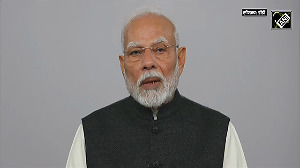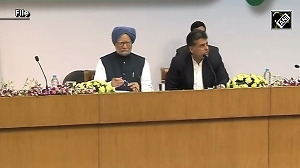Even as IT majors are hiring in fewer numbers this financial year on the back of a slowing global economy and trauma in the banking, finance and insurance services (BFSI) sector, Indian business process outsourcing (BPO) firms--captive and pure play--appear bullish. They are increasing their headcount in the country, attributing their optimism to business ramp-ups over the last couple of months and an increased acceptability of offshore work.
Indian IT firms, on the other hand, have been utilising their bench strength and hiring fewer employees to protect margins. Infosys is on record that it would hire 10,000 fewer people for FY09. TCS has changed its hiring mix to maintain costs, and mid-sized firms like Hexaware have deferred hiring plans by nearly two quarters.
On the other hand, the CEO of UK's largest BPO, Capita, told Business Standard during his recent visit to India that the India centre will hire 1,000 people over the next 12 months. Similarly, US-based Convergys announced it will hire 2,500 people by the end of this year. Aricent recently announced plans to expand its global workforce by up to 10 per cent by year end, with emphasis on its India operations. It has slightly over 6,000 employees in India.
The BPOs believe that more work will be offshored to locations like India. Consider this. To cut costs and bring in efficiency into its operations, Capita has introduced a blended onshore and offshore business model. As a part of which it is increasing its headcount in India. "We have bid for new work worth £3 billion, of which a substantial amount will come to India," asserted Paul Pindar, Capita chief executive.
A Valuenotes Database study indicates that domestic BPO firms would employ about 540,000 people in the next four years against 140,000 staffers currently. Karthik Sarma , Chief People Officer, WNS Global Services believes the BPO industry differs from the IT industry. Any economic downturn leads to cuts in discretionary IT spending. But such cuts don't affect the BPO industry because most of the revenue comprises long-term contracts.
"There are several financial services organisations that are still around, and cutting cost is a priority for them. Unlike IT services, BPOs do not catering to the discretionary spend kind of work. They still are into basic transaction work like claims processing, etc.," added Sudin Apte, senior analyst, Forrester.
"This optimism can be credited to the upcoming IT and ITeS Special Economic Zones (SEZ) and Parks. The emergence of new pricing models (value-based, gain-share), innovative business models (platform-based BPO), global delivery models, expanded BPO services (legal process outsourcing) are also contributing to the growth of the industry," said Naresh Malhan, MD, Manpower India.
Sukant Srivastava, managing director and country manager of Convergys, says: "We are increasing the number of contact centre agents employed in India based on client needs. Based on that we will add 2,500 people by the end of the year." The company's current headcount is over 13,000 in India.
But these companies are less optimistic on the international front when it comes to hiring. Aditya Gupta, President, Infovision Software, feels that the international environment is not congenial enough to increase headcount but plans to add 5,000 people to its current workforce of 12,000 in India.






 © 2024 Rediff.com -
© 2024 Rediff.com -